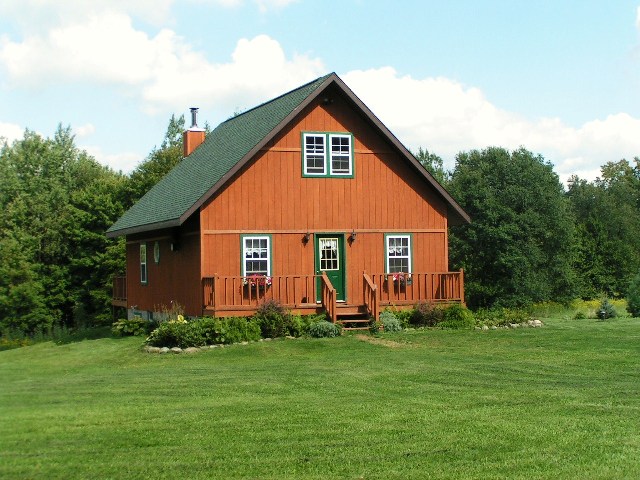The Lunar Sabbath – Part 3
The Divine Number

GOD is the Author of numbers, and he created them for the express purpose of counting. It’s what they were designed to do – to define or measure time & space. Numbers, therefore, by reason of their very design, function as the basis for all measurement. Each measurement (with the exception of the number 1) has a beginning and ending number, and thus forms a sequence. Sequences were, by their very nature, designed by God to be perfectly reproducible and predictable in their results. As natural laws produce predictable results, so also do numbers – “What goes up must come down,” is as reproducible and predictable a fact as is the equation 1 + 1 = 2.
Numbers are tools, and if we want to know the purpose of any tool, we only need to examine how it is used, and what it is used for – hammers are designed for driving or pounding, knives and scissors are for cutting, rope is to bind or secure objects, etc. While it is true that every tool’s use may not be readily obvious, yet this is certainly not the case with numbers. Men may speculate as to why we have just five fingers and two hands, yet to the Christian it must be obvious that it is by design; for God made us that way. But why did he give man just five digits? The simplest answer is, he wanted us to count, and he knew that twos, fives, and tens are the easiest sequences for counting, and are, therefore, the most useful for everyday purposes.
I ask you, dear reader, What could be more reasonable than for the Lord God, after having measured out the original seven day week, to expect man to follow his example, and to count out all the following weeks? One 19th century Sabbath keeper and Bible scholar expresses this purpose of God in the following clear and forceful manner:
With the beginning of time, God began to count days, giving to each an ordinal number for its name. Seven different days receive as many different names. In memory of that which he did on the last of these days, he sets that apart by name to a holy use. This act gave existence to weeks, or periods of seven days. For with the seventh day, he ceased to count, and, by the divine appointment of that day to a holy use in memory of his rest thereon, he causes man to begin the count of a new week so soon as the first seventh day had ceased. And as God has been pleased to give man, in all, but seven different days, and has given to each one of these days a name which indicates its exact place in the week, his act of setting apart one of these by name, which act created weeks and gave man the Sabbath, can never – except by sophistry – be made to relate to an indefinite or uncertain day. ― John Nevins Andrews – “History of the Sabbath and First Day of the Week,” p. 16 (1873)
Add too this well-stated fact the following corroborating testimony:
The enumeration of the days of the week commenced at Sunday. Saturday was the last or seventh, and was the Hebrew Sabbath, or day of rest. . . . From the circumstance that the Sabbath was the principal day of the week, the whole period of seven days was likewise called תבש [sabbath], in Syriac אתבש [shabbath’a], in the New Testament σάββατον [sabbaton] and σάββατα [sabbata]. ― “A Biblical & Theological Dictionary,” pp. 952-53, article “Weeks,” by Richard Watson & Nathan Bangs (1833) (brackets are supplied)
Thus the “week” was born which contains but seven days – the perfect number/sequence. It is seen at once to be divine, and this fact alone can answer man’s nigh universal reverence for the number seven. It is also just as clear that man had no part in either its commencement or its institution. It is no more dependent upon him for either its existence or its function, as are the sun, moon, or stars; for as each successive day comes and goes unaided by man, so by the passage of the seven successive days of creation the holy Sabbath once more returns unbidden. As there is no interruption in the successive passage of days, so there can be no interruption in the successive passage of weeks, months, and years. For when the sun sets upon the earth at the close of the sixth day, and darkness once more prevails over earth and sky, then it is that the Sabbath day once more commences on schedule at its divinely appointed time, its mo‘ed. To acknowledge that the passage of time by its very nature is continual, consistent, and regular, is also to grant that the seven day sequence we call a “week” is by its very nature an unbroken and consistent cycle or sequence. And it is all by the Creator’s purpose and design. There can be no escape from this conclusion, except by denying the very premise of the Creation and the continuum of time.
The week, therefore, was divinely born for a purpose. What was that purpose, you ask? Answer, only that which the Lord God himself hath declared:

“Remember the sabbath day, to keep it holy. Six days shalt thou labour, and do all thy work: but the seventh day is the sabbath of the LORD thy God: in it thou shalt not do any work, thou, nor thy son, nor thy daughter, thy manservant, nor thy maidservant, nor thy cattle, nor thy stranger that is within thy gates: for in six days the LORD made heaven and earth, the sea, and all that in them is, and rested the seventh day: wherefore the LORD blessed the sabbath day, and hallowed it.” ― Exodus 8:8-11
Learn of what God says about looking within.
Gardening - Fall Activities
These are important things to do in your garden now!
The Lunar Sabbath - Part 3 - The Divine Number
What is the purpose for numbers? And what does that have to do with the fourth commandment?
Health Corner - The Dangers of Supplements
You could be consuming something that you think is healthy, when it could be contributing to disease and even the very problem you are trying to avoid.
A Medical Missionary Academy
The Living Waters Medical Missionary Academy in Fiji opened its doors in the second semester of 2011... Find out more.
Recipe
Simply Yummy Pancakes
Think on These Things
An Addiction all Christians should have...
Seventh Day Home Church Fellowships is an association of Sabbath-keeping groups, which through web & tele-conferencing provides means for study, fellowship, and jointly organized missionary projects.
Website: www.seventhdayhomechurchfellowships.org
Email: admin@seventhdayhomechurchfellowships.org
Seventh Day Home Church Fellowships:
P.O. Box 262, Laconia, NH 03246, U.S.A.
